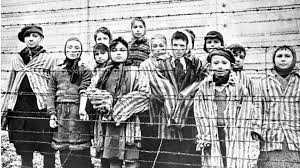
The Complex City
Faith and religion have been two main pillars that unite humans through the centuries. These get associated with cities and places, making them sacred. Visiting these cities wash away sins, a few of them serve as the headquarters of religion, and some of them are birthplaces of God, making them all sacred in some way or other.
Jerusalem is a city that played an integral role for different religions. A holy city that is sacred to the followers of Judaism, Christianity, and Islam. Jerusalem is one of the holiest cities in this world, also nicknamed the Holy City and the City of Peace, but this city throughout history has remained the city of conflicts.
The city of Jerusalem had been destroyed twice. Armed conflicts happened 16 times during the siege of this city. It was besieged 23 times and traded through many hands, and attacked about 52 times over its control. Certainly, this is not the City of Peace rather its complexity has far more consequences.
A special city that has played its part in uniting people and dividing them, in the name of faith and religion. A holy city home to three major religions of the world remains in existence as a complex city.
History
Jerusalem, situated in western Asia in Judean Mountain between the Mediterranean, and the Dead Sea is an old city dating back to more than 2000 B.C. making the existence of this city nearly 4000 years or perhaps longer.
Centuries of its existence, three major religions have fought for its control. These are the Abrahamic religions consisting of Judaism, Christianity, and Islam. These religions mention Abraham as their forefather and patriarch in their holy books like the Torah, the Bible, and the Quran.
Jews and Christens trace their roots to Abraham’s second son Isaac, and Muslims trace their root to his elder son Ishmael. The belief and ancestry divide them, but Jerusalem has been one holy city that keeps them united.
The Importance
In Hebrew, the city is called Yerushayalim, the spiritual homeland of the Jewish people. Temple Mount in Jerusalem is the place where two Jewish temples stood thousands of years ago. The Western Wall is the last remnant of that temple and is the holiest site in Judaism.
Jews face the Western Wall of Jerusalem during their prayers as the Muslims pray to face the Kaba in Mecca. This city is sacred among Muslims as the holy Sanctuary ‘Al Quds’ home to the Al Aqsa Mosque, the third holiest site for Muslims after Mecca and Medina.
At the top of the Mosque is the dome of the rock, where Muslims say that Prophet Mohammed has ascended to heaven. Christianity mentions Jerusalem as Salem in the Bible, this city has the holy Church of Sepulchre where Jesus Christ was crucified, buried, and resurrected.
Who owns Jerusalem?
Jerusalem holds an important and sacred place for all these three religions. Things get much more complicated with this question. Jerusalem belongs to everyone and yet no one. Every empire tried to own and control it through faith and even through oppression.
In the words of Churchill, “It is the Jews that made Jerusalem famous”. Dwelling into history around 135 BC, the Romans drove out Jews out of Jerusalem and renamed the kingdom from Judah to Palestina, a Greek name to end Jewish connections.
Romans barred Jews to set their foot in the land of Jerusalem and drove them away to different other places in central and western Europe. The Jews became persecuted wherever they went. Around the 11th Century, the Jews were slaughtered by different crusaders who considered them as the killers of Jesus Christ.
In the 14th Century, the Jews were blamed and slaughtered for causing the Black Death and accused of poisoning the drinking water bodies and Rhine River. This persecution of the Jews continued till the 19th Century. Angered and frustrated with repeated persecution the Jews joined hands and forces to protect their identity.
Demographics Change
Zionism was launched by Jews to protect their identity and put an end to the centuries of persecution and oppression and take the Jews back to their homeland Jerusalem. Zionism believed that Judaism is not only their religion but their identity and integrity and they deserve a state to practice their religion.
Zionism brought thousands of Jews back to Jerusalem and became a part of their national ideology. The end of the 19th Century brought a major influx of Jews back to Palestine. The Ottoman Empire collapsed during the First World War, and British Empire took control of Palestine.
At first, the British allowed the immigration of Jews, but this soon led to tensions among the Arabs and the Jews and frequent skirmishes between the two. To maintain peace and stability, the British administration limited the immigration of Jews by the 1930s.

The holocausts of the Second World War saw the execution of 6 million Jews by Nazi Germany and led the Jews to migrate towards Palestine and other places like the US. The population of Jews increased dramatically in and around Palestine, and the western world came out in support of a separate Jewish state.
UN Intervention
Large-scale fighting erupted in 1947 between the Arabs and the Jews. The western world supported the creation of a separate Jewish state, but the Arab world was against it. United Nations intervened and created a proposal in 1947 to break Palestine into two separate states one for the Jews called the Israel and other for the Arab world called Palestine.
Israel was allocated 56.5 percent of the land, and the remaining 43.5 percent of the land for the Arab world was named Palestine. The city of Jerusalem would be under an international zone as it houses the three major religions.
Keeping Jerusalem as an international zone was a colossal failure as the British administration failed to curb the rising violence situations. The British administration left this land in a messy condition as they did the same with India and Pakistan.
The Collision
Israel accepted the UN plan and proclaimed independence on 14th May 1948. The Palestinians viewed this as a theft of their land. This followed the decades of animosity between the Arabs and the Jews. This animosity has led to 8 wars, two Palestinian intifadas or uprisings, and multiple armed conflicts.
Israel views these uprisings as do-or-die situations for them as they are fighting for their existence with centuries of oppressive history serving as a backdrop. With each conflict, Israel gained more and more of Palestine’s land.
Israel now controls most of the land, and Palestine’s Arab population is limited to a few ghettos. It is this situation that funnels the repeated attacks on Israel and Jerusalem bears the brunt of the attacks.
An old and holy city home to three major religions witnessed large-scale violence across centuries and continues to witness more. A city termed as a city of peace has never remained in peace across centuries and held its place as the centre of many armed conflicts that continue to persist even today to gain control over a piece of land. Thus the complexity of Jerusalem persists, never seeking to end.




 (1 votes, average: 5.00 out of 5)
(1 votes, average: 5.00 out of 5)


